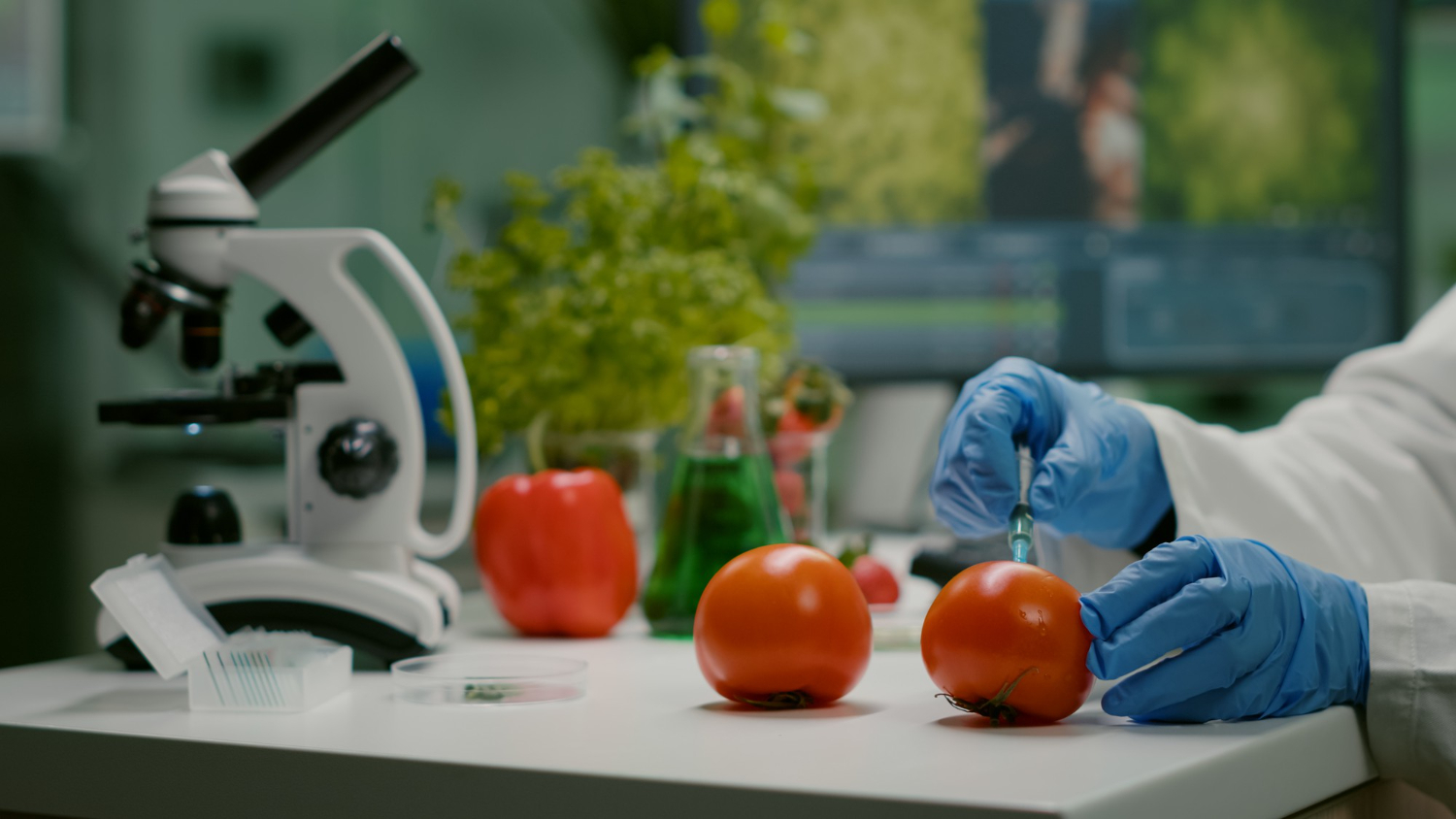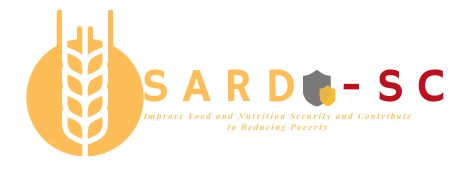โรงไฟฟ้าพลังงานน้ำแบบสูบกลับ เป็นโรงไฟฟ้าพลังน้ำชนิดหนึ่งที่สามารถใช้กักเก็บพลังงานไฟฟ้าได้ โดยอาศัยการสูบน้ำจากอ่างเก็บน้ำด้านล่างขึ้นไปเก็บไว้ที่อ่างเก็บน้ำด้านบนในช่วงที่มีความต้องการใช้ไฟฟ้าต่ำ


โรงไฟฟ้าพลังงานน้ำแบบสูบกลับ เป็นโรงไฟฟ้าพลังน้ำชนิดหนึ่งที่สามารถใช้กักเก็บพลังงานไฟฟ้าได้ โดยอาศัยการสูบน้ำจากอ่างเก็บน้ำด้านล่างขึ้นไปเก็บไว้ที่อ่างเก็บน้ำด้านบนในช่วงที่มีความต้องการใช้ไฟฟ้าต่ำ

อย่างที่ทราบกันดีว่าการสูบบุหรี่ไฟฟ้าถือว่าเป็นรูปแบบ บุรีที่ได้รับความนิยมและเป็นที่สนใจสำหรับลูกค้าเป็นอย่างมาก ใครๆก็เริ่มหันมาสูบบุหรี่ไฟฟ้ากันเพิ่มมากขึ้นทุกวันและแน่นอนว่าถ้าคุณเป็นหนึ่งในคนที่สนใจต้องการช่องทางการเลือกซื้อบุหรี่ไฟฟ้านอกจากคุณจะสามารถเข้ามาเลือกซื้อได้ที่เว็บออนไลน์ของเราแล้ว อุปกรณ์บุหรี่ไฟฟ้าอย่างน้ำยาองุ่นยาว ก็ถือว่าเป็นอีกหนึ่งรูปแบบ อุปกรณ์สำคัญที่ลูกค้าจะต้องเข้ามาเลือกซื้อ ที่เว็บออนไลน์ของเรา เพราะรูปแบบน้ำยาองุ่นยาของเรามีหลากหลายรูปแบบหลากหลายสไตล์ให้คุณได้เลือกซื้อในราคาที่ถูกคุ้มค่าอย่างแน่นอน สำหรับผู้ที่สนใจและกำลังมองหาช่องทางการเลือกซื้อน้ำยาองุ่นยาวที่เชื่อถือได้ ลองเข้ามาทำความแล้วรู้จักและเลือกซื้อที่เว็บออนไลน์ของเราได้เลย เราการันตีในคุณภาพและบริการจัดส่งที่รวดเร็วช่วยทำให้ลูกค้าได้รับสินค้าที่ตอบโจทย์และตรงกับความต้องการมากที่สุด หรือ ก่อนที่จะสั่งซื้อลูกค้าสามารถขอคำแนะนำจากทีมงานก่อนได้ จะช่วยทำให้ลูกค้า เลือกซื้อน้ำยาองุ่นยาวได้ตรงกับ ความต้องการและลักษณะการใช้งานของตัวบุหรี่ไฟฟ้าที่ลูกค้าใช้อยู่อย่างแน่นอน สั่งซื้อน้ำยาบุหรี่ไฟฟ้า องุ่นยาว แน่นอนว่าการเลือกซื้อน้ำยาบุหรี่ไฟฟ้าองุ่นยาวในปัจจุบันนี้ ถือว่าเป็นอีกหนึ่งช่องทาง ที่จะช่วยทำให้คุณได้รับความสะดวกสบายในการสั่งซื้อสินค้ามากที่สุดผ่านเว็บไซต์ออนไลน์ ลูกค้าสามารถเข้ามาเลือกซื้อรูปแบบน้ำยาบุหรี่ไฟฟ้าองุ่นยาวได้ตามความต้องการ พร้อมมีบริการจัดส่งที่รวดเร็ว เชื่อถือได้ช่วยทำให้ลูกค้าได้รับสินค้า ได้ตรงตามความต้องการและ เหมาะกับการใช้งานมากที่สุด สำหรับใครที่สนใจต้องการสั่งซื้อน้ำยาองุ่นยาวกับเรา ลูกค้าสามารถเข้ามาดูรายละเอียดสินค้าได้ที่หน้าเว็บเพื่อที่จะช่วยทำให้คุณตัดสินใจเลือกซื้อรูปแบบน้ำยาองุ่นยาว กลับไปใช้งาน ได้ตรงตามความต้องการมากที่สุด รวมถึงสามารถเข้ามากดรับโปรโมชั่น ส่วนลดสำหรับน้ำยาบุหรี่ไฟฟ้าองุ่นยาว ซึ่งจะช่วยทำให้คุณประหยัดเงินในการเลือกซื้อสินค้าได้มากยิ่งขึ้น บอกได้เลยว่าลูกค้าจะไม่ผิดหวังเมื่อเข้ามาเลือกซื้อสินค้า น้ำยาบุหรี่ไฟฟ้าองุ่นยาวกับเรา หากลูกค้าต้องการคำแนะนำเพิ่มเติมหรืออยากได้ความช่วยเหลือในขั้นตอนการสั่งซื้อน้ำยาบุหรี่ไฟฟ้าองุ่นยาวหรือต้อง ความรู้จักกับรูปแบบน้ำยาบุหรี่ไฟฟ้าประเภทอื่นๆก็สามารถเข้ามาสอบถามรายละเอียดและสั่งซื้อสินค้ากับเราได้เลย เราพร้อมให้ความช่วยเหลือและดูแลในทุกๆขั้นตอนเพื่อที่จะช่วยทำให้ลูกค้าสามารถสั่งซื้อสินค้าได้ตอบโจทย์และตรงกับการใช้งาน ในราคาที่ถูกที่สุด ซึ่งถ้าคุณเข้ามาเลือกซื้อผ่านเว็บไซต์ออนไลน์ ไม่ใช่เพียงแค่น้ำยาบุหรี่ไฟฟ้าองุ่นยาวเท่านั้นที่ลูกค้าสามารถเข้ามาเลือกซื้อได้ เรายังมี อุปกรณ์บุหรี่ไฟฟ้าประเภทอื่นๆที่น่าสนใจ ให้ลูกค้าได้ลองเข้ามาเลือกซื้อได้อีกด้วย เรียกได้ว่าเข้ามาซื้อกับเว็บไซต์ออนไลน์เว็บเดียวจบ

อย่างที่ทราบกันดีอยู่แล้วว่า ปัจจุบันนี้ปัญหาฝุ่น หรือมลภาวะทางอากาศของประเทศไทยไม่ค่อยสู่ดีนัก โดยเฉพาะฝุ่นอย่าง PM 2.5 ที่เล่นงานใครหลาย ๆ คนไปได้แล้ว เนื่องจากว่าเป็นฝุ่นชนิดที่อันตรายต่อร่างกาย และระบบทางเดินหายใจด้วย ในยุคนี้หลาย ๆ คนจึงหันมาเลือกใช้เครื่องฟอกอากาศกัน เพราะอยากที่จะช่วยลดฝุ่นที่จะเข้ามาในบ้าน หรืออาคาร เครื่องฟอกอากาศ bwellก็เป็นหนึ่งในแบรนด์เครื่องฟอกอากาศที่ได้รับความนิยมมาก ๆ นั่นก็เพราะว่าเครื่องฟอกอากาศของทางแบรนด์ทำออกมาได้ดี และมีข้อดีหลาย ๆ อย่าง แล้วข้อดีของเครื่องฟอกอากาศแบรนด์นี้จะมีอะไรบ้าง มาติดตามกัน 3 ข้อดีของการใช้เครื่องฟอกอากาศ bwell 1. สามารถกรองอากาศได้แบบครบวงจร จุดเด่นของเครื่องฟอกอากาศ bwell คือ เรื่องของคุณภาพที่สามารถทำออกมาได้ดี โดยสามารถช่วยกรองอากาศได้สูงสุดถึง 7 ขั้นตอนเลยทีเดียว แน่นอนว่าเมื่อกรองอากาศแล้ว ก็จะทำให้สามารถหายใจได้สะดวกมากขึ้น แถมยังเป็นมิตรต่อร่างกายของผู้ใช้งานด้วย นอกจากนั้นตัวเครื่องของทางแบรนด์ยังได้ถูกออกแบบมาให้สามารถกรองฝุ่นที่มีขนาดเล็กอย่าง PM 2.5 ได้ด้วย อีกทั้งยังช่วยในเรื่องของการลดกลิ่นเหม็น เชื้อโรค และแบคทีเรีย ถือว่าเป็นเครื่องที่มีความครบเครื่องมาก ๆ ที่สำคัญตัวเครื่องมีขนาดใหญ่ ทำให้สามารถทำงานได้อย่างมีประสิทธิภาพ 2. สามารถทำความสะอาดได้ง่าย อย่างที่ได้บอกไปแล้วว่า ตัวเครื่องนั้นมีขนาดที่ใหญ่…

ในอุตสาหกรรมการผลิตต่าง ๆ การสร้าง โรงงาน จำเป็นต้องใส่ใจในรายละเอียดมาก แค่จ้างผู้รับเหมา จัดหาวัสดุอุปกรณ์ และวางแผนการก่อสร้างคงไม่พอ เนื่องจากโครงการก่อสร้างต้องนึกถึงปัจจัยต่าง ๆ ทั้งก่อนเริ่มก่อสร้างหรือหลังสร้างเสร็จ ถ้ามองข้ามปัจจัยที่สำคัญหรือประเมินองค์ประกอบอื่นไม่รอบคอบ จะส่งผลเสียอย่างมากต่อโรงงาน เงินทุน อุปกรณ์ และสิ่งแวดล้อม EPC (Eco Plant Services) จะพาคุณมารู้จัก EPC Service ซึ่งทำให้โครงการก่อสร้างโรงงานดำเนินไปอย่างมีประสิทธิภาพและราบรื่น บริการด้านวิศวกรรมของ EPC EPC Service มีชื่อเต็มว่า Engineering-Procurement-Construction เป็นบริการออกแบบวิศวกรรมครบวงจร ประกอบด้วยหลักการ P-E-A หรือก็คือ Pre-Construction, Execution และ After-Construction โดยบริการตั้งแต่การจัดหาอุปกรณ์และเครื่องจักร ก่อสร้าง ติดตั้ง บริหารจัดการโครงการตั้งแต่ต้นจนจบ เหมาะกับโครงการทุกประเภท ไม่ว่าจะเป็นโครงการก่อสร้างขนาดเล็กหรือใหญ่ EPC Service Thailand จะเริ่มจากศึกษา “ความคุ้มค่า” ของโครงการ โดยประเมินผลของการก่อสร้างที่มีต่อสิ่งแวดล้อม การขอใบรับรองต่าง ๆ จากทางราชการ รวมถึงการดูแลควบคุมงานไฟฟ้า…

ต้องบอกเลยว่าการก่อสร้าง ไม่ว่าจะเป็นการก่อสร้างบ้าน ก่อสร้างอาคาร หรือก่อสร้างสำนักงาน ก็ล้วนแล้วแต่มีสิ่งที่ต้องคำนึงถึงด้วยกันทั้งสิ้น อาจจะกล่าวได้ว่าบริษัทต่างๆ ที่รับออกแบบและก่อสร้างอาคารครบวงจรนั้นก็มีจุดเด่นเป็นของตนเองแตกต่างกันออกไป บางบริษัทจะเน้นสไตล์การทำงานที่รัดกุม เรียบร้อย ลงตัวทุกด้าน ในขณะที่บางบริษัท จะเน้นไปที่การออกแบบที่ทันสมัยและสวยงาม โดยข้อดีของบริษัทรับออกแบบก่อสร้างครบวงจร จะมีอะไรบ้างนั้น มาดูพร้อมๆ กัน 1.สามารถออกแบบให้กับลูกค้าได้ทุกสไตล์ ความต้องการในการก่อสร้างอาคารของลูกค้านั้น แตกต่างกันออกไปหลายต่อหลายด้าน ไม่ว่าจะเป็นการออกแบบก่อสร้างบ้านเรือนสไตล์โมเดิร์น บางคนชอบสไตล์คอนเทมโพรารี บางคนชอบสไตล์ไทยประยุกต์ ในขณะเดียวกับการออกแบบให้ครบถ้วนสำหรับลูกค้าทุกสไตล์นับเป็นทางเลือกที่น่าสนใจอย่างยิ่ง โดยเฉพาะหากว่าคุณเป็นอีกคนหนึ่งที่ต้องการให้การออกแบบตอบโจทย์สำหรับตนเอง อาจจะแจ้งความต้องการหรือว่าความประสงค์พื้นฐานไปก่อนน่าจะดีที่สุด หรืออาจจะเลือกแบบบ้าน แบบอาคาร การตกแต่งห้องที่ตนเองพึงพอใจไปให้กับทางบริษัทดูก็ได้เช่นกัน รับประกันได้ว่าหากลูกค้าแจ้งความต้องการกับทางบริษัทรับออกแบบก่อสร้างได้ถูกต้องและแม่นยำแล้ว ก็จะช่วยให้การออกแบบออกมาตรงใจอย่างแน่นอน 2.ลักษณะของการออกแบบ หลายๆ คนอาจจะสงสัยใช่หรือไม่ว่าลักษณะของการออกแบบนั้นเป็นอย่างไรบ้าง หากว่ามองดูลักษณะเผินๆ การออกแบบก็ดูจะเหมือนกันไปหมด แต่ในความเป็นจริงแล้วมีรายละเอียดปลีกย่อยจำนวนมากที่ทุกคนอาจไม่รู้มาก่อน ยกตัวอย่างเช่นลักษณะของการออกแบบ หากว่าลูกค้าอยากได้แบบบ้านสวยๆ สไตล์นอร์ดิก ทางบริษัทก็จะมีการมองหาแหล่งอ้างอิง เพื่อนำมาตรวจสอบและตรวจทานกับลูกค้าก่อนเป็นอันดับหนึ่ง และในขณะเดียวกันหากว่าลูกค้าต้องการให้การออกแบบลงตัว เป็นเอกลักษณ์ ก็อาจจะเลือกออกแบบโดยเน้นไปที่ความต้องการของตนเอง หรือมองหาสิ่งที่ดีให้กับตนเอง เป็นต้น 3.การบริการแบบครบวงจร สิ่งที่ถือว่าเป็นข้อดีที่สุดของบริการนี้ก็คือ การให้บริการตั้งแต่การออกแบบไปจนถึงการก่อสร้าง และการตกแต่งอันดับสุดท้าย ซึ่งไม่ว่าทางลูกค้าจะว่าจ้างสร้างอาคารชนิดใดก็ตาม จะเป็นอาคารที่มีลักษณะเบื้องต้นงดงามมากหรือน้อยเพียงใด ก็มั่นใจได้เลยว่าจะทำให้เจ้าของพึงพอใจอย่างแน่นอน และนี่ก็คือลักษณะสำคัญที่ไม่ว่าใครก็ควรจะรู้ในอันดับเบื้องต้นเมื่อจะว่าจ้างบริษัทรับออกแบบก่อสร้างบครบวงจร จะดีกว่าหรือไม่หากเรานั้นคัดเลือกบริษัทที่ให้บริการครบวงจรที่ดีที่สุดสำหรับการก่อสร้างอาคารของเรา…

ใครๆ ก็อยากจะมีผิวที่สวยสุขภาพดี ซึ่งบางครั้งการทาครีมบำรุงก็อาจจะไม่เพียงพอ การทานวิตามินผิวจะช่วยเผยผิวที่สุขภาพดีจากภายในได้อย่างดีเยี่ยม ในปัจจุบัน การใช้ชีวิตในเมืองที่มีมลภาวะ แสงแดดและความเครียดทำให้ผิวหน้าและผิวกายดูร่วงโรย จึงมีวิตามินบำรุงผิวมาเป็นตัวช่วยในการบำรุงผิวจากภายใน ทำให้ผิวกระจ่างใส ดูไม่ทรุดโทรม เพราะวิตามินเหล่านี้จะช่วยต่อต้านการเกิดอนุมูลอิสระ ลดการอักเสบของผิวหนัง ช่วยสร้างคอลลาเจน ช่วยการผลัดเซลล์ผิว กระตุ้นการไหลเวียนของโลหิต รวมถึงให้ความชุ่มชื้นแต่ผิวด้วย จะมีวิตามินผิวตัวไหนน่าลอง วันนี้ไปดูกันเลย Rojukiss 3 Gluta C Acerola จะช่วยดูแลผิวดีจากภายในสู่ภายนอก มีส่วนผสมของกลูต้าไธโอน สารสกัดจากเชอร์รี่ไทยที่อุดมด้วยวิตามินซี และซีสเทอีน (Cysteine) กรดอะมิโนที่เสริมความแข็งแรงของ ผิวหนัง ผม และเล็บ ผสานน้ำมันมะกอก และกรดอัลฟาไลโปอิก ช่วยต้านอนุมูลอิสระและปกป้องเซลล์ในร่างกายจากความเสียหาย ช่วยให้ผิวดูกระจ่างใส เรียบลื่น ลดเลือนความหมองคล้ำและจุดด่างดำได้ดี Rosegold Sakana Collagen หรือที่หลาย ๆ คนเรียกว่า คอลลาเจนแม่ชม ตัวนี้เป็นคอลลาเจนที่ผลิตและนำเข้าจากประเทศญี่ปุ่น ด้วยเทคโนโลยีของทางญี่ปุ่นที่ป้องกันกรด ทำให้สามารถดูดซึมได้อย่างเต็มที่ ตัวเม็ดมาในลักษณะเป็น Softgels จากพืช ง่ายต่อการกิน นอกจากนี้ในแต่ละเม็ดเองก็อัดแน่นมาด้วย Collagen Di-Peptide…

ประกันภัยรถยนต์ ประเภท 3 อีกหนึ่งทางเลือกของคนใช้รถ ที่ต้องการทำประกันรถยนต์ ซึ่งถือเป็นประกันราคาประหยัด และให้ความคุ้มครองที่คุ้มครอง หากคุณเป็นอีกหนึ่งคนที่กำลังลังเล ไม่รู้ว่าจะซื้อประกันรถยนต์ประเภทไหนดี โดยเฉพาะประเภทที่ 3 ในวันนี้เราจะพาคุณไปไขข้อสงสัยพร้อม ๆ กันว่า ประกัน 3 คืออะไร? ให้ความคุ้มครองเป็นอย่างไร? และเหมาะสำหรับใครบ้าง? เพื่อให้การตัดสินใจซื้อความคุ้มครองของคุณมีประสิทธิภาพมากยิ่งขึ้น! ประกัน 3 คืออะไร ให้ความคุ้มครองอย่างไร? หากจะให้อธิบายแบบเข้าใจง่าย รวบรัด ว่าประกัน 3 คืออะไร บอกตรงนี้เลยว่าเป็นประกันรถยนต์ที่ให้ความคุ้มครองเพิ่มเติม จาก พ.ร.บ.ตามกฎหมายพื้นฐาน ซึ่งให้ความคุ้มครองผู้เอาประกันดังนี้ คุ้มครองชีวิตและร่างกายของบุคคลภายนอก และผู้โดยสารในรถยนต์ของผู้เอาประกัน คุ้มครองทรัพย์สินของบุคคลภายนอก ตามเงื่อนไขที่ระบุไว้ในกรมธรรม์ คุ้มครองพิเศษตามเอกสารแนบท้าย เช่น ประกันผู้ขับขี่ ประกันอุบัติเหตุส่วนบุคคล หรือประกันภัยค่ารักษาพยาบาล ซึ่งประกันชั้น 3 จะแตกต่างจากประกันอื่น ๆ นั่นก็คือในส่วนของความคุ้มครองที่ไม่ครอบคลุม โดยส่วนไม่ได้รับความคุ้มครองจากประกันประเภทนี้ก็คือ กรณีรถยนต์สูญหาย ไฟไหม้ เกิดภัยพิบัติทางธรรมชาติ และรถชนแบบไม่มีคู่กรณี หรือพูดง่าย ๆ ว่าประเภทประเภทนี้…

•ปล่อยให้ธรรมชาติรักษา ใครหลายๆคนคงไม่เข้าใจว่าธรรมชาติบำบัดนั้นคืออะไรมีไว้เพื่ออะไรเเล้วทำทำไมมันมีผลดีกับชีวิตเราเเละสามารถทำอะไรได้บ้างวันนี้เราจะพาเข้าไปดูหลักการของธรรมชาติบำบัดนั้นเอง •ธรรมชาติคือที่สุด ธรรมชาติบำบัด คือ การดูแลรักษา กาย ใจ โดยขบวนการธรรมชาติ ตั้งอยู่บนหลักว่าโรคทุกชนิด ทั้งร่างกายและจิตใจของคนเรา สามารถเยียวยารักษาตัวเองได้ ถ้าร่างกายอยู่ในสภาพสมดุลปกติ โรคร้ายต่าง ๆ ที่เกิดขึ้นจำนวนมาก เช่น มะเร็ง เบาหวาน ความดันโลหิตสูง เส้นเลือดหัวใจตีบตัน ภูมิแพ้ หืดหอบ ฯลฯ เกิดจากการดำเนินชีวิตที่ผิดธรรมชาติ โดยเฉพาะคนที่อยู่ในเมืองใหญ่ ๆ และ รับประทานอาหารที่มีสารเคมีปนเปื้อน เช่น เนื้อสัตว์ที่เลี้ยงด้วยฮอร์โมนเร่งการเจริญเติบโต ยาปฏิชีวนะ หรือ รับประทานยาหรือฉีดยาที่ทำจากสารเคมี สารเหล่านี้จะตกค้างอยู่ในร่างกายมาก หรือการใช้ชีวิตที่เครียดเกินไป หักโหมเกินไป กังวลเกินไป ออกกำลังกายไม่เพียงพอ พักผ่อนไม่เพียงพอ ดังนั้นการดูแลสุขภาพของคนเราจะเน้น เรื่องอาหาร การรับประทานอาหารที่ดีก็จะทำให้มีสุขภาพดี สุขภาพของคนขึ้นอยู่กับ พฤติกรรมของการรับประทานอาหาร Bacteria ไม่มีผลทำให้เกิดโรคต่อร่างกาย การเจ็บป่วยของคนล้วนเกิดจากอาหารที่มีสารพิษปนเปื้อนที่คนเรารับประทานเข้า ไป เรื่อง ดิน น้ำ ลม ไฟ เป็นเรื่องของธรรมชาติที่ต้องเรียนรู้ •พักสงบอยู่กับธรรมที่เราคุ้นเคย…

•ว่ากันด้วยเรื่องของธรรมชาติ ธรรมชาตินั้นอยู่คู่กับคนเรามาอย่างช้านานและธรรมชาติยังอยู่ก่อนเรา แต่จะมีใครรู้ไหมว่าธรรมชาติความหมายจริงๆของมันคืออะไร วันนี้เราหาคำตอบมา ทุกคนได้อ่านว่าความหมายจริงๆของธรรมชาติคืออะไร •ธรรมชาติอยู่คู่เรามานาน คำว่า nature หรือที่เราเรียกติดปากกันว่าธรรมชาตินั้นมาจากคำภาษาละตินโบราณหากแปลตามตรงหมายถึง การกำเนิดมักถูกใช้เป็นคำแปลภาษาลาตินจากคำภาษากรีก ซึ่งเดิมเกี่ยวข้องกับลักษณะภายในซึ่งพืชสัตว์และลักษณะเฉพาะอื่นของโลกได้พัฒนาแนวทางของตนขึ้นมามโนทัศน์ของธรรมชาติโดยรวมเป็นหนึ่งในวิถีทางของการต่อยอดขยายความคิดแบบดั้งเดิม ซึ่งเริ่มต้นจากการประยุกต์ใช้เกณฑ์บางอย่าง โดยนักปรัชญายุคก่อน socrativeและได้รับความแพร่หลายอย่างต่อเนื่องนับแต่นั้น การใช้นี้ได้รับการยืนยันระหว่างการมาถึงของระเบียบวิถีทางวิทยาศาสตร์สมัยใหม่ในหลายศตวรรษหลังนับตั้งแต่การปฏิวัติอุตสาหกรรมธรรมชาติ ถูกมองว่าเป็นส่วนหนึ่งของความจริงที่ปราศจากการแทรกแซงด้วยเหตุนี้ บางคตินิยมจึงถือว่าธรรมชาติเป็นสิ่งที่ควรค่าแก่การเคารพเป็นสิ่งที่สวยงามอันบริสุทธิ์ที่พระเจ้าสร้างขึ้นมาหรือเป็นส่วนหนึ่งของประวัติมนุษย์อย่างไรก็ตามมุมมองที่ว่าธรรมชาติมีพลังงานชีวิตอยู่ซึ่งเป็นมุมมองที่ใกล้เคียงกับยุก่อนโสเครติตโดยกลับมาอีกครั้งในเวลาไล่เลี่ยกันจากที่มีการใช้ในปัจจุบันคำว่าธรรมชาติ มักแสดงถึงธรณีวิทยาและสัตว์ป่าธรรมชาติอายมาถึงอาณาจักรของพืชและสัตว์หลายชนิดทั่วไปและในบางกรณีหมายถึงขบวนการซึ่งเกี่ยวข้องกับ วัตถุที่ไร้ชีวิต เช่น ลม ฟ้า อากาศ และธรณีวิทยา ของโลกและสสารพลังงานอันประกอบขึ้นทุกสิ่งเหล่านี้จะเรียกว่าสิ่งแวดล้อมทางธรรมชาติ •เพราะอย่างงี้นี่เอง ความหมายรากเหง้าของธรรมชาติ ทำให้เรานั้นได้รู้เรื่องภาษาว่าทำไมถึงต้องเรียกธรรมชาติว่าธรรมชาติ

•ทำไมต้องอร่อย หลายคนคงยังไม่รู้ว่าพืชนั้นถูกปรับเปลี่ยนให้สามารถรับประทานได้ซึ่ง gmo คือผู้พัฒนาตัดแต่งพันธุกรรมให้กับพืชวันนี้เราจะพาไปดูว่าจีเอ็มโอคืออะไรแล้วทำไมถึงมีความสัมพันธ์กับมนุษย์และพืชมาก วันนี้เราจะพาไปทำความรู้จักกับgmo •ว่ากันด้วยเรื่องของ GMO GMO หมายถึงจุลินทรีย์พืชและสัตว์ที่มีการเปลี่ยนแปลงสารพันธุกรรม โดยใช้หลักการและเทคนิคทางพันธุวิศวกรรมในเชิงวิทยาศาสตร์ คือกระบวนการตัดต่อ และปลุกถ้ายิ้มจากสิ่งมีชีวิตหนึ่งไปสู่สิ่งมีชีวิตหนึ่ง หรือชนิดเดียวกันและหญิงที่ถูกถ่ายทอดไปนั้นสามารถทำงานสร้างโปรตีนได้เช่นเดิม ดังนั้นการถ่ายยีนส์จึงทำให้สิ่งมีชีวิตได้รับยืนยันเข้าไปและ สามารถแสดงลักษณะเด่นใหม่ที่ไม่เคยมีใครเห็นมาก่อน โดยพืชที่ได้รับการคัดเลือกให้ผ่านกระบวนการทางพันธุวิศวกรรมเพื่อที่จะให้พืชชนิดนี้มีคุณลักษณะ และคุณสมบัติที่จำเพาะเจาะจงตามความต้องการของคนรุ่นใหม่ของมนุษย์ ยกตัวอย่างเช่น สตอเบอรี่จีเอ็มโอเราสามารถทำให้สตอเบอรี่มีลักษณะที่ดีขึ้นโดยสตอเบอรี่ที่ปัดต่อพันธุกรรมแล้วจะส่งผลให้สตอเบอรี่มีระยะเวลาในการเน่าเสีย ซึ่งเค้าให้สามารถสะดวกในการขนส่ง เช่น เคลื่อนย้ายและทำให้สตอเบอรี่มีสารอาหารมากขึ้น ตัวอย่างที่สอง มันฝรั่งเราสามารถพบมันฝรั่งที่ทำให้มีลักษณะที่ดีขึ้นและ เมื่อมีการตัดต่อพันธุกรรมมันฝรั่งนั้นเป็น เศรษฐกิจของไทยที่มีการตัดต่อพันธุกรรมเช่นเดียวกับข้าวโพดโดยใช้หลักการตัดต่อยีนส์ของแบคทีเรียเข้าไปในยิมของมันฝรั่งซึ่งทำให้สารอาหารเพิ่มมากขึ้นและ เพิ่งมีการค้นพบวิจัยว่าสามารถผลิตวัคซีนที่เป็นประโยชน์ต่อมนุษย์ได้อีกด้วย ซึ่งประโยชน์ของพืชที่ถูกตัดต่อพันธุกรรมแล้วมีประโยชน์ทั้งต่อ เกษตรกรซึ่งหวังพึ่งเรื่องพวกนี้อยู่แล้ว การตัดต่ออนุกรรมทำให้เกิดเพื่อนหลายสายพันธุ์ใหม่ที่มีความทนทานต่อสภาพแวดล้อมแลทนต่อสตูพืชมากขึ้นและทำให้เกิดพืชสายพันธุ์ใหม่ที่มีคุณสมบัติในการเก็บรักษาไว้ได้นาน ทำให้สามารถอยู่ได้นานหลายวัน แล้วขนส่งระยะทางไกลโดยไม่เน่าเสีย แต่มันก็ยังมีข้อเสียเช่นสารอาหารจากจีเอ็มโออาจจะมีสิ่งปนเปื้อนและ อันตรายความกังวลในเรื่องของการพาหะของสารพิษสารอาหารจากจีเอ็มโอ อาจมีคุณค่าทางโภชนาการไม่เท่าอาหารปกติ •ธรรมชาติดีที่สุด สุดท้ายนี้ถึงแม้ว่าจีเอ็มโอนั้นเป็นเทคโนโลยีที่ทำให้คนเราได้มีสิทธิ์ที่จะกินอาหารที่อร่อยมากขึ้นแต่สิ่งที่ธรรมชาติประธานให้มักจะดีที่สุดเสมอ
